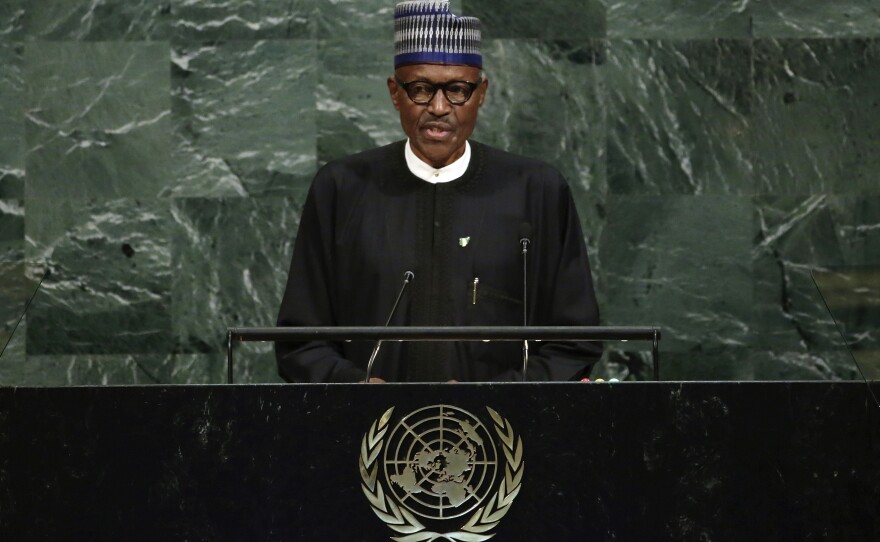During the U.N. General Assembly meeting last week, a number of African leaders had lunch with President Donald Trump. They met to discuss U.S. investments that could help develop and provide security for the region, including a multi-billion dollar railway concession deal GE recently signed with Nigeria.
WSHU’s Ebong Udoma reached the Nigerian minister of Industry, Trade and Investment at the conference and asked how difficult it is to get U.S. investment in a region where China seems to be at the forefront of such deals.
Below is a transcript of their conversation.
Okechukwu “Okey” Enelamah, thank you for joining us. You just got a billion dollar investment from China. Is that where you’re turning to now? Are you getting any Western investments in Nigeria?
The opportunities in Nigeria are so significant and so extensive that there’s not going to go one size fits all. China is important, Asia is important. but so is the U.S. That’s why we’re in the U.S. this week as you may know. And we’ve been having meetings with investors. And the U.S. remains a very important strategy bracket for Nigeria and for Africa in general.
So if you look at what’s happening in agriculture and agri-processing and industry, if you look at the deal we signed with GE, General Electric, there’s a $2 billion deal to take over some of the railway concession. If you look at what some of the other U.S. companies are doing in food, the deal that Coca-Cola did with Chi (a Nigerian juice company), a $400 million deal, the deal that Kellogg’s did with a group called Tolaram, that was also a multi-hundred million dollar deal.
So I think the U.S. remains a very important ally, and a very important market and a very important set of investors for Nigeria.
The U.S. stock market is doing fabulously well right now. In the past year the S&P 500 is up 16 percent and the Dow is up 18 percent, and we haven’t even yet had President Trump’s promised tax cuts and the big infrastructure plan. So why should a U.S. investor want to put money in Nigeria?
A lot of long-term sustainable investments that one can make will come from major markets like Nigeria. And if we succeed in our reform agenda, which we’re making headway, then I think you will find that it will offer many opportunities to, not just to U.S. investors, but to investors around the world, and even domestic investors.
If you look at the infrastructure deficit or the infrastructure gap in Nigeria, I think provided where we invite the private sector to work with us to improve that infrastructure, they can get very good returns. From concessioning our airports, our routes, our railways and all the other infrastructure we need for running our businesses, and that’s what we’re planning to do.
Nigeria is going to be the 3rd largest in population by the year 2050. Between now and 2050, we expect half of the growth in the world is going to be in Africa and much of that is going to be in Nigeria. What does that mean? How do you care for that expanding population?
I think the most important thing is that the growth plan is focused on investing in our people. If we actually invest in the education of our people in health care and we develop opportunities through industry and the economy like we’re working on, I think you’ll find that our population will become our most potent asset. And I think that’s where we’re headed.
You say 15 million jobs in the next three years. Is that a realizable goal?
I think it can be a realizable goal but it’s not automatic. The reason why is that if you look at the infrastructure ambitions and program of the government, that alone will create millions of jobs. If you look at what we’re doing in housing, that will create lots of jobs. I think one should always remember that the flip side of underdevelopment is opportunity for growth and therefore for employment because you need people to do that work. And we are well on our way.



